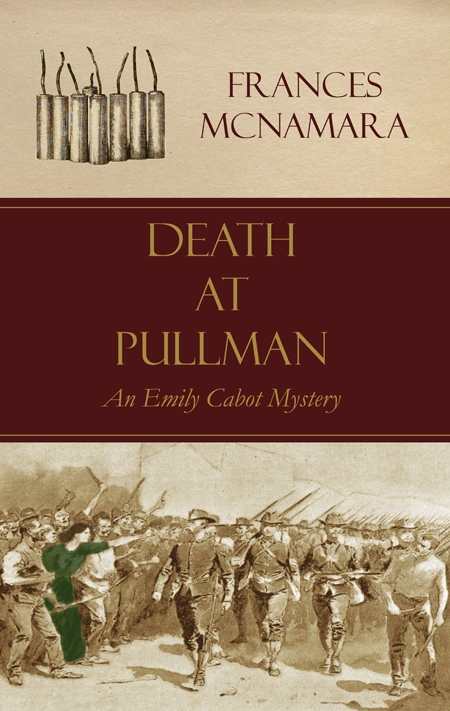Death at Pullman
An Emily Cabot Mystery
- 2011 INDIES Finalist
- Finalist, Mystery (Adult Fiction)
Set just one year after the 1893 World’s Fair in Chicago, this novel echoes Devil in the White City in its historical richness and the fact of a mysterious murder central to its plot. Told through the eyes of an industrious twenty-four-year-old reformer, Emily Cabot, the story of the Pullman railroad car workers’ strike unfolds with equal parts naivete and sophistication—just the thing for revisiting an historical moment made all the more poignant by our own present recession.
When an economic slump hits and orders fall off for George Pullman’s luxurious train cars (many outfitted with Oriental carpets and chandeliers), his “philanthropy” in setting up an impressive company town for his workers is put to the test—one he resoundingly fails. His workers are virtually required to live in Pullman (just south of Chicago) and rent their houses from him, but when their wages plummet and their rents are unwavering, his tenants and their families are propelled into insurmountable debt and near starvation.
Cabot, who normally makes her home at Hull House (the site of an earlier mystery by McNamara), is called to gather and distribute food to the needy in Pullman. When she comes upon a hanged man and helps to lower his body to the ground, she becomes personally invested in the plight of those around her, desperately seeking some sort of resolution to the strike and an explanation for the gruesome murder.
A little romance, a lot of labor history, and the descriptive physical reality of period details (a bomb made from nails and screws stuffed into a lead pipe and ignited by dynamite) are artfully combined in McNamara’s third Emily Cabot tale. A believable mix of fictional and historical characters (labor leader Eugene Debs and activist Jane Addams make appearances) is another of the author’s prime strengths. While the book’s writing is solid, with even an occasional stab at beauty—“We ran quickly and easily, the warm air rushing past us like a curtain disturbed by the wind”—Emily’s dialogue sometimes reads like exposition, conjuring an unwelcome image of homework.
A librarian at the University of Chicago, McNamara clearly knows, and loves, her setting. Perhaps most impressive is the way the young, single Miss Cabot navigates the dangers of her terrain with a sense of belonging and purpose, steadfastly pursuing her mission of helping to bring justice to those the system shuns.
Reviewed by
Julie Eakin
Disclosure: This article is not an endorsement, but a review. The publisher of this book provided free copies of the book to have their book reviewed by a professional reviewer. No fee was paid by the publisher for this review. Foreword Reviews only recommends books that we love. Foreword Magazine, Inc. is disclosing this in accordance with the Federal Trade Commission’s 16 CFR, Part 255.

